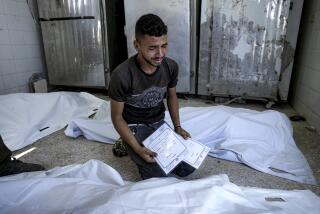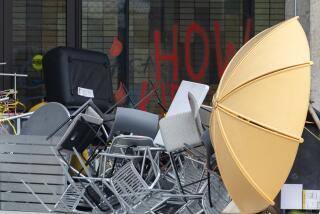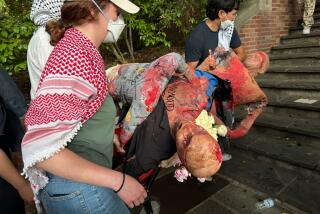Despite agreement, clashes erupt at Jerusalem shrine as Muslims return to pray
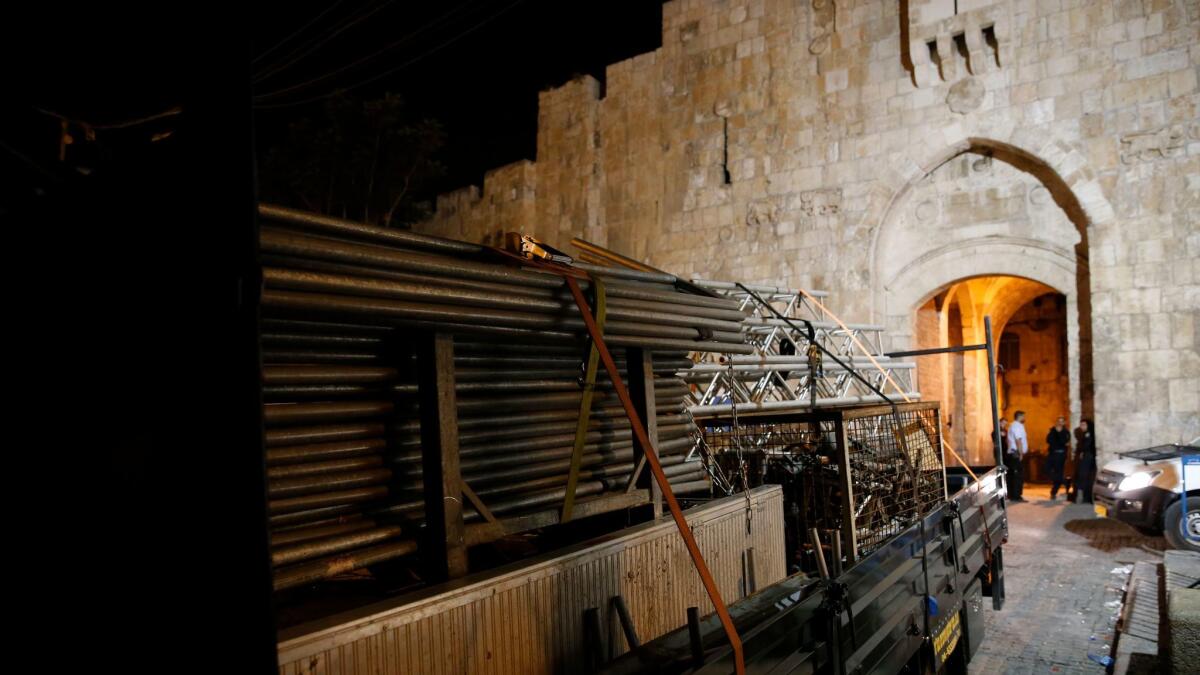
- Share via
Reporting from JERUSALEM — At least 50 Palestinians were injured in clashes with Israeli police Thursday as violence continued at a contested holy site, even after an agreement to ease tensions was announced by the site’s governing religious authority.
Into the evening, Palestinian protesters threw rocks and Molotov cocktails at police, who responded with stun grenades, police spokesman Micky Rosenfeld said. Jerusalem’s Old City was completely sealed off, with no entry allowed at some points during the clashes.
In what both Israelis and Palestinians are calling a “capitulation,” Israel removed the metal detectors it had installed at the entrance gates to an esplanade at the site, known as the Temple Mount by Jews and the Noble Sanctuary by Muslims. The detectors had been placed there after two Israeli police officers were shot and killed by assailants who had carried guns into the sacred site.
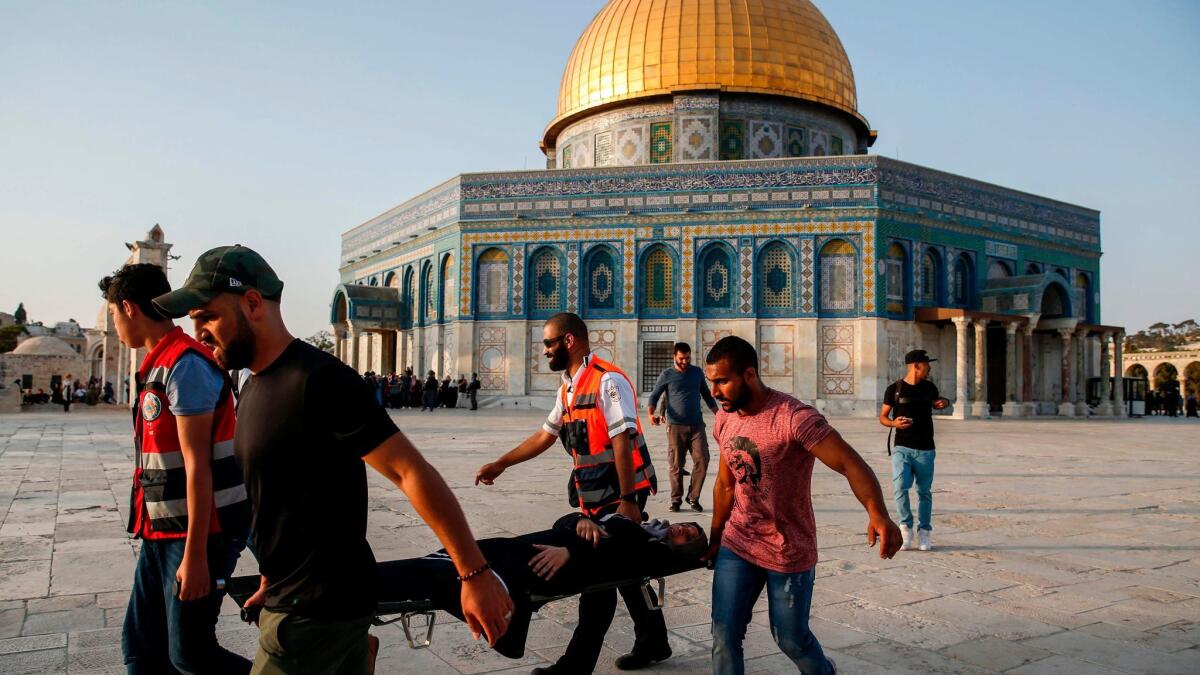
Palestinians had protested and refused to enter the site through the metal detectors.
Abdel-Azeem Salhab, the director of the Waqf, the Muslim council that governs the site, said that with the security devices removed, “We will be able to offer prayers inside the compound,” allowing the faithful to pray at Islam’s third-most holy site, the Al Aqsa Mosque.
“The Israeli occupation forces have been trying for decades to violate the Al Aqsa Mosque compound,” he added. “Now, you are living in the new era of victory.”
Sheikh Raed Dana of the Waqf urged worshipers to “return to normal” since all Israeli security all measures had been withdrawn.
But for now, the Palestinian people are not following their leaders.
On Wednesday, Palestinian Authority President Mahmoud Abbas gave his approval to the Fatah Tanzeem militia, an armed branch of his political party, to lead mass protests in the West Bank on Friday at the time of traditional prayers at the mosque. On Thursday, in response to the Israeli withdrawal and in an attempt to quell the growing demonstrations, he instructed his security forces to celebrate “victory at Al Aqsa” by handing out candy to the crowds.
The Israeli army sent extra units to the West Bank in anticipation of thousands of rowdy protesters.
In these fractious times, Israelis and Palestinians seem to agree on only one matter: that Israeli Prime Minister Benjamin Netanyahu gravely mishandled the crisis.
Polls taken Wednesday night as Israel dismantled the metal detectors show Israelis sharply disapprove of Netanyahu’s actions, including the decision to install the detectors against the advice of the Shin Bet, Israel’s intelligence service.
According to one survey, 77% of adult Israelis believe Netanyahu “surrendered” to Arab demands, and 67% believe he has mishandled the crisis.
Angry protesters surrounded Netanyahu’s residence Thursday, carrying an empty casket to represent the “burial of Israel’s national honor.”
King Abdullah of Jordan urged Israel to “respect the historical and legal situation in the holy shrine to prevent the recurrence of these crises,” the Associated Press reported.
Jordan is the Muslim custodian of the shrine, which marks the spot where Muslims believe the Prophet Muhammad ascended to heaven. It is also the holiest site in Judaism, where two Jewish temples once stood. The nearby Western Wall is a remnant of the second temple, and is considered the holiest place where Jews can pray.
This is a rare Mideast crisis in which people on both sides remain frustrated and susceptible to violence even as their leaders declare that the crisis has been defused.
The tension has not quieted and the Israeli army announced that special reinforcements would be dispatched to the West Bank on Friday in anticipation of thousands of protesters.
Tarnopolsky is a special correspondent.
ALSO
Israelis and Palestinians agree to water deal to help communities suffering chronic shortages
The ‘caliphate’ is all but lost, yet Islamic State’s threat remains potent
Jordan releases video to tamp down support for Green Berets’ killer
UPDATES:
2:55 p.m.: This article was updated with comments from a Waqf spokesman and Israel moving troops into the West Bank.
10:20 a.m.: This article was updated throughout with staff reporting.
9:05 a.m.: This article was updated with reporting on crowds gathering at holy site, clashes with police, criticism from the king of Jordan.
This post originally published at 4:45 a.m.
More to Read
Sign up for Essential California
The most important California stories and recommendations in your inbox every morning.
You may occasionally receive promotional content from the Los Angeles Times.
